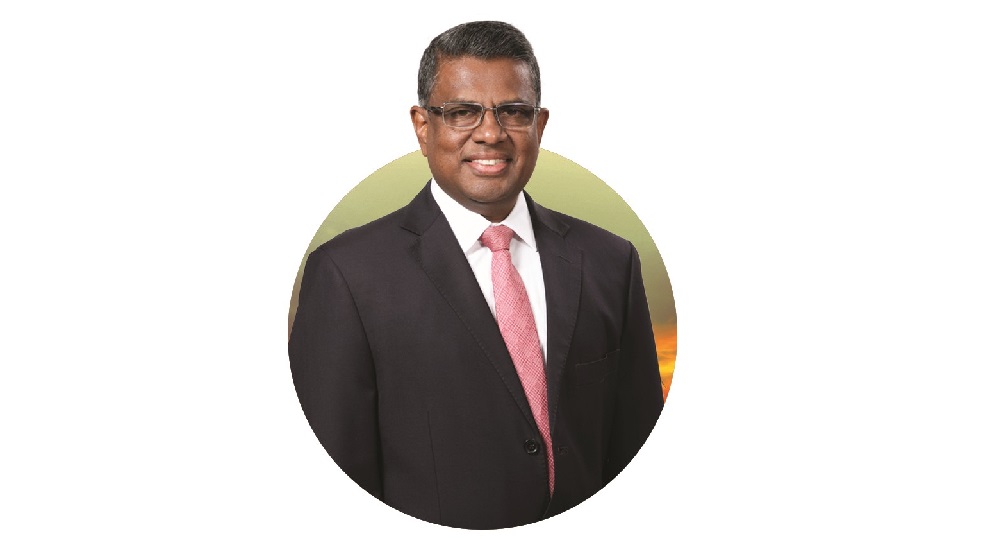
Building a Nation, One Project at a Time
As DFCC Bank marks 70 years of operations in 2025, it does so with a legacy steeped in national development and an eye firmly fixed on Sri Lanka’s sustainable future. Founded in 1955 as the country’s first development finance institution, DFCC Bank played an instrumental role in industrialising a newly independent nation. Seventy years later, the Bank is reshaping that legacy for a new era of climate action, innovation, and inclusive progress.
Pioneering Sri Lanka’s Green Journey
Before ESG became a global imperative, DFCC Bank laid the groundwork for Sri Lanka’s non-conventional renewable energy landscape. In 1996, it financed the country’s first grid-connected, private sector mini-hydro power project – an initiative that became a cornerstone in the island’s clean energy evolution. This was soon followed by a leadership role in managing the World Bank and Global Environment Facility’s “Energy Services Delivery” programme in 1997 and later the “Renewable Energy for Rural Economic Development” project in 2003. These early initiatives catalysed rural transformation and built credibility for clean energy investments nationwide.
DFCC Bank’s commitment only grew stronger. It financed Sri Lanka’s first private sector wind power project in 2010 and the first grid-scale solar power plant in 2016. By 2017, the Bank was behind a ground-breaking rooftop solar aggregator project, and in 2021, it co-financed the nation’s first waste-to-energy project. Each of these projects contributed to a national ecosystem for renewable power – one project, one megawatt at a time.
Direct Access to Global Climate Finance
This legacy of leadership culminated in 2023 when DFCC Bank became Sri Lanka’s first and only Direct Access Entity (DAE) accredited by the Green Climate Fund (GCF). This extraordinary accreditation allows the Bank to access financing for projects costing up to USD 250 million in concessional climate finance, directly supporting investments in areas such as renewable energy, climate-resilient agriculture, and coastal resilience. Working in partnership with organisations like UNDP and FAO, DFCC Bank is now at the heart of the country’s climate finance architecture.
A Landmark Green Bond with Global Reach
In 2024, DFCC Bank again made financial history by issuing Sri Lanka’s first-ever Green Bond. Listed on the Colombo Stock Exchange and the Luxembourg Stock Exchange’s Luxembourg Green Exchange (LGX) platform – the world’s premier marketplace for sustainable securities – this dual-listed bond signalled more than innovation. It proved that Sri Lanka could meet rigorous European ESG standards and attract international attention.
This milestone was underpinned by DFCC Bank’s Green Bond Framework, developed in accordance with the ICMA Green Bond Principles and Sri Lanka’s Green Finance Taxonomy. The Framework is not just a compliance tool but also an example for future issuers, enabling others to follow in its footsteps.
A Bridge to the European Capital
The dual listing opened a new phase: engaging European institutional investors and raising funding in both local and foreign currency. DFCC Bank has already begun raising funds overseas – an effort aligned with Sri Lanka’s broader ambition to source sustainable foreign capital as it recovers from economic distress.
These efforts have been bolstered by diplomatic and institutional support. In 2023, a delegation from the Luxembourg Stock Exchange visited Sri Lanka and engaged directly with DFCC Bank. The Sri Lankan Ambassador to Luxembourg also recognised the Bank’s efforts to raise much-needed capital to support national recovery. These developments signify a growing bond between the two markets and a vote of confidence in DFCC Bank’s ability to lead this internationalisation.
Significantly, the Green Bond Framework strengthens DFCC Bank’s credibility and contributes directly to Sri Lanka’s national goal of generating 70% of its electricity from renewable sources by 2030. This work is nation-building, finance-led, and future-facing.
Embedding ESG into the Core
DFCC Bank’s commitment to sustainability is not limited to marquee deals. In 2016, the Bank implemented a rigorous Environmental and Social Management System (ESMS), embedding ESG considerations into every lending decision. This system – now one of the most advanced in the country – has shaped sector-wide standards and deepened internal expertise.
By the end of 2024, DFCC Bank had disbursed over LKR 4.4 billion in new green loans, with a compliant green loan book totalling LKR 12.9 billion. The Bank’s Green Deposit product channels customer funds into SLGFT-compliant projects in sectors such as waste management, renewable energy, water supply, and climate-smart agriculture.
Empowering Exporters Through ESG
DFCC Bank is also working to future-proof Sri Lanka’s export economy. By helping corporate clients strengthen their ESG frameworks, the Bank enables businesses to meet international compliance benchmarks, especially in European markets. Through technical assistance, green funding, and policy advisory, DFCC Bank creates a pipeline of ESG-aligned exporters who can thrive in an increasingly regulated global trade environment.
Leading by Example
DFCC Bank’s operations mirror its lending philosophy. From digitalising customer journeys and reducing internal emissions to optimising energy use and minimising paper trails, the Bank is integrating sustainability into its everyday practices.
As DFCC Bank reflects on 70 years of progress, its leadership remains focused on a future where growth and responsibility go hand in hand. The Bank believes that true progress is not measured merely by scale or speed but by how responsibly that progress is achieved. Economic resilience and environmental sustainability are not seen as competing priorities but as complementary pillars of long-term national development. This belief has guided DFCC Bank throughout its journey and continues to define its path forward as it leads Sri Lanka into a new era of sustainable growth.



